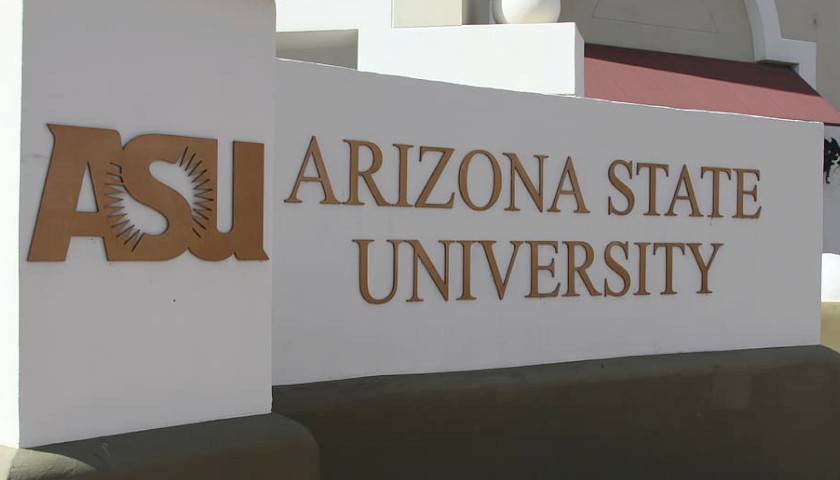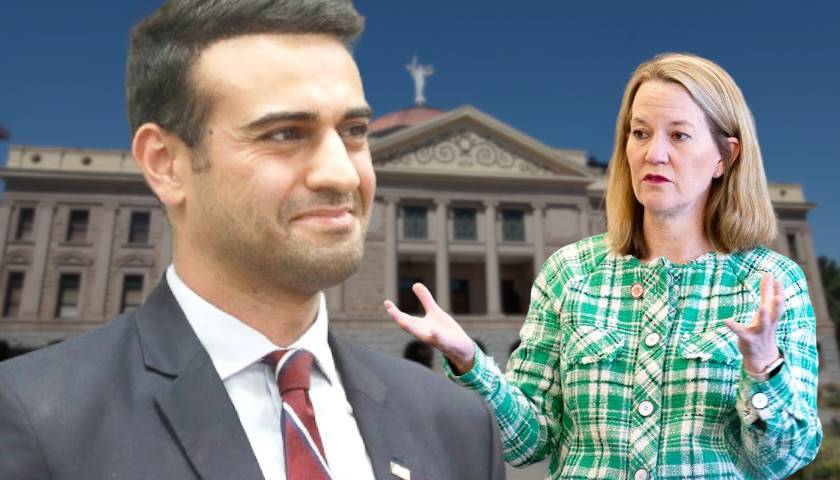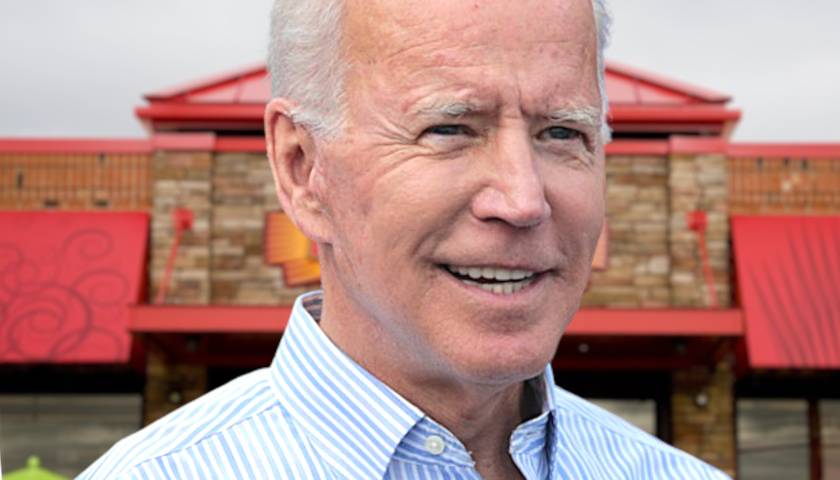The Arizona Board of Regents announced Tuesday the state’s public universities have ended the use of diversity, equity and inclusion (DEI) statements in job hirings in the wake of an exposé by the Goldwater Institute that showed the taxpayer-funded schools were using unconstitutional political litmus tests to screen out conservative-leaning candidates.
A report Tuesday at Arizona Republic said the state’s public universities “have dropped the use of diversity, equity and inclusion statements in job applications, a move that follows demands by the conservative Goldwater Institute.”
Spokespersons from the Board of Regents and Arizona State University (ASU), however, also reportedly told the Republic that “DEI statements” were “never” required for job applicants.
“However, examples of job postings shows this is not true,” the report added.
The Goldwater Institute, a free-market public policy research and litigation organization, which released its exposé in January titled “The New Loyalty Oaths: How Arizona’s Public Universities Compel Job Applicants to Endorse Progressive Politics,” responded to the news of the Board of Regents’ announcement with the statement it had just “struck a death blow against the use of political litmus tests in Arizona’s public universities.”
“[T]he schools are eliminating the practice of requiring ‘diversity statements’ on job applications,” a press release stated. “The decision came after the Goldwater Institute exposed that up to 80 percent of faculty job postings at Arizona State University, the University of Arizona, and Northern Arizona University were forcing applicants to provide the statements in order to screen out insufficiently progressive candidates.”
“This is a huge victory for academic freedom and the First Amendment,” Goldwater Institute President and CEO Victor Riches said. “The Goldwater Institute is continuing to show the nation how to defeat the destructive ideologies that are crippling colleges and universities.”
Key findings of the Goldwater Institute report included:
- Up to 80 percent of faculty job openings at Arizona’s public universities now similarly push applicants to pledge support for DEI.
- As of fall 2022, diversity statements are mandated in over a quarter (28 percent) of job postings at the University of Arizona, nearly three-quarters (73 percent) of job postings at Northern Arizona University, and in more than four of five (81 percent) job postings at Arizona State University.
- Diversity statement practices in Arizona’s public universities include replacing the traditional cover letter with a DEI statement, forcing candidates to provide up to two full pages detailing their activism or commitment to the DEI regime, and calling on applicants to endorse CRT-based concepts such as “intersectional personal identities.”
As a result of the use of DEI statements for job applicants, “[a]t the University of Arizona, faculty registered as Democrats now outnumber Republicans by more than 7 to 1,” the Institute noted. “At Arizona State University, Democrats outnumber Republican faculty more than 12 to 1.”
“DEI programs and ‘statements’ do not produce free expression nor more diversity of thought, equal opportunities, and a culture that includes everyone in school activities because DEI’s guiding principles are rooted in the racially discriminatory worldview known as critical race theory,” noted Goldwater Institute Senior Jonathan Butcher in the report’s foreword.
In July, ASU Theology Professor Dr. Owen Anderson made the claim to The Arizona Sun Times that the school uses DEI questions in job interviews to screen out more conservative applicants in favor of “candidates that agree with their left wing agenda.”
An ASU spokesman, however, claimed to The Sun Times the university does not require job applications to ask DEI questions but did not state whether such questions are included in the screening of applicants or if university professors must agree with the school’s DEI initiatives.
As the Republic observed, a current job posting for a postdoctoral research scholar at ASU’s Institute of Human Origins states applicants for the post are “required” to submit “a statement addressing how your past and/or present potential contributions to diversity and inclusion will advance ASU’s commitment to inclusive excellence.”
“The College values our cultural and intellectual diversity, and continually strives to foster a welcoming and inclusive environment,” the posting states. “We are especially interested in applicants who can strengthen the diversity of the academic community.”
The Goldwater Institute report noted other job listings at the time of its release that led to the conclusion that the Arizona schools use DEI statements to “circumvent the state’s constitutional prohibition against political litmus tests in public educational institutions.”
One example included a Northern Arizona University (NAU) 2022 job posting for a German foreign language position that directed applicants regarding a required attachment of their “Diversity, Equity, Inclusion, and Justice (DEIJ) statement to a link to NAU’s “standardized DEIJ statement requirement,” as the Institute observed.
“NAU’s commitment to becoming a True Diversity University recognizes the importance and critical need for diversity, equity, inclusion, and justice (DEIJ) to be woven throughout the institutional structure and we seek to hire individuals with a strong track record of engagement with DEIJ in their professional endeavors,” NAU’s statement read and then instructed applicants to “draft a one-page DEIJ statement that addresses your philosophy, experiences, education, training, and accomplishments in regard to DEIJ.”
– – –
Susan Berry, PhD is national education editor at The Star News Network. Email tips to [email protected]






Any organization using anything other than merit, choosing anyone other than the best person for the job as indicated by academic and professional experience and success, actively is working against the interests of the shareholders, the community, society, and civilization. If some people cannot keep up, they need to try harder, study harder, work harder or find a position that suits what talents and motivation they have.